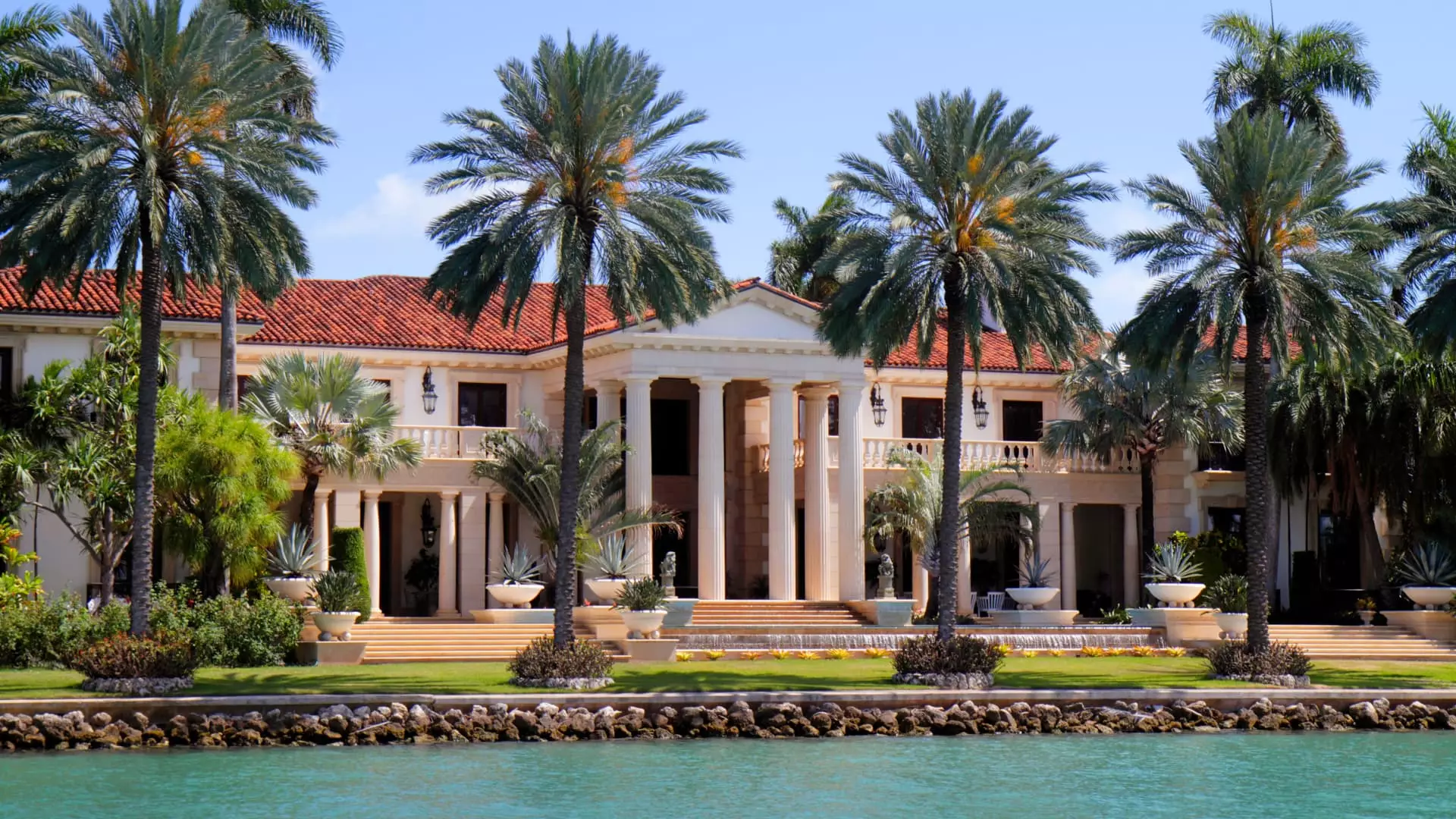The recent findings from the Wealth Report by Knight Frank are staggering yet unsettling. In 2024, the United States emerged as the world’s epicenter for high-net-worth individuals, boasting nearly 40% of global multimillionaires—almost double that of its nearest rival, China. With the number of multimillionaires globally increasing by 4.4% to 2,341,378, a significant 5.2% of that growth occurred in North America. While these figures may prompt applause from markets, they should instead evoke concern for the widening chasm between the affluent and the average citizen.
As the report suggests, while global economic growth appears sluggish, the resilience of the U.S. economy has managed to bolster investor confidence and wealth production. Liam Bailey, Knight Frank’s global research head, noted the continuous rise in financial markets under the aegis of equity and tech booms, which undeniably benefited the elite. The S&P 500’s remarkable 23% rise and the Nasdaq’s even more jaw-dropping 29% growth further illustrate this phenomenon. Yet, one must question at what cost this prosperity comes.
The Deepening Divide: Wealth and Power in America
As wealth burgeons in the hands of a select few, we must confront the unsettling reality of wealth accumulation’s implications for democracy and social mobility. The rise of billionaires, with 204 newly minted oligarchs in just one year, marks a troubling crossroads for American society. The stark acceleration of wealth concentration raises alarms about the power dynamics that come with such economic might. Are we not only witnessing an era of billionaires but rather, an era where their influence over policy and society eclipses that of the average American?
Critics argue, and rightly so, that the recent growth in wealth for America’s elite occurs in a vacuum, isolating them from the realities confronting the middle class. Despite soaring asset values and market recoveries, ordinary Americans endure escalating costs and stagnant wages. For the typical family grappling with the repercussions of inflation, the narrative of economic success appears dissonant and disconnected from their day-to-day experiences.
Flawed Economy: Rising Costs Amid Economic Booms
The economic optimism suggested by rising markets glosses over the more dire realities faced by the majority. The pressures brought on by ongoing trade wars and substances of inflation have resulted in what feels like a betrayal of the American promise. The anticipated benefits of market gains are not trickling down, leaving many Americans with feelings of vulnerability and frustration.
As Oxfam pointed out, the speed at which billionaires are amassing wealth has tripled—raising urgent questions about the structural issues embedded within this system. The fixation on creating wealth for a select group undermines the foundational values of equity and opportunity. While the richer can afford to bask in their newfound fortunes, the detrimental effects on smaller communities grow relentlessly.
In an era defined by inequality, we cannot become complacent. The path of wealth creation should not be solely for the financial elite. As we witness how the elite have insulated themselves from the long-term challenges of our economy, it becomes imperative that we focus on equitable solutions that lift all boats, rather than celebrating the singular rise of a privileged minority.

